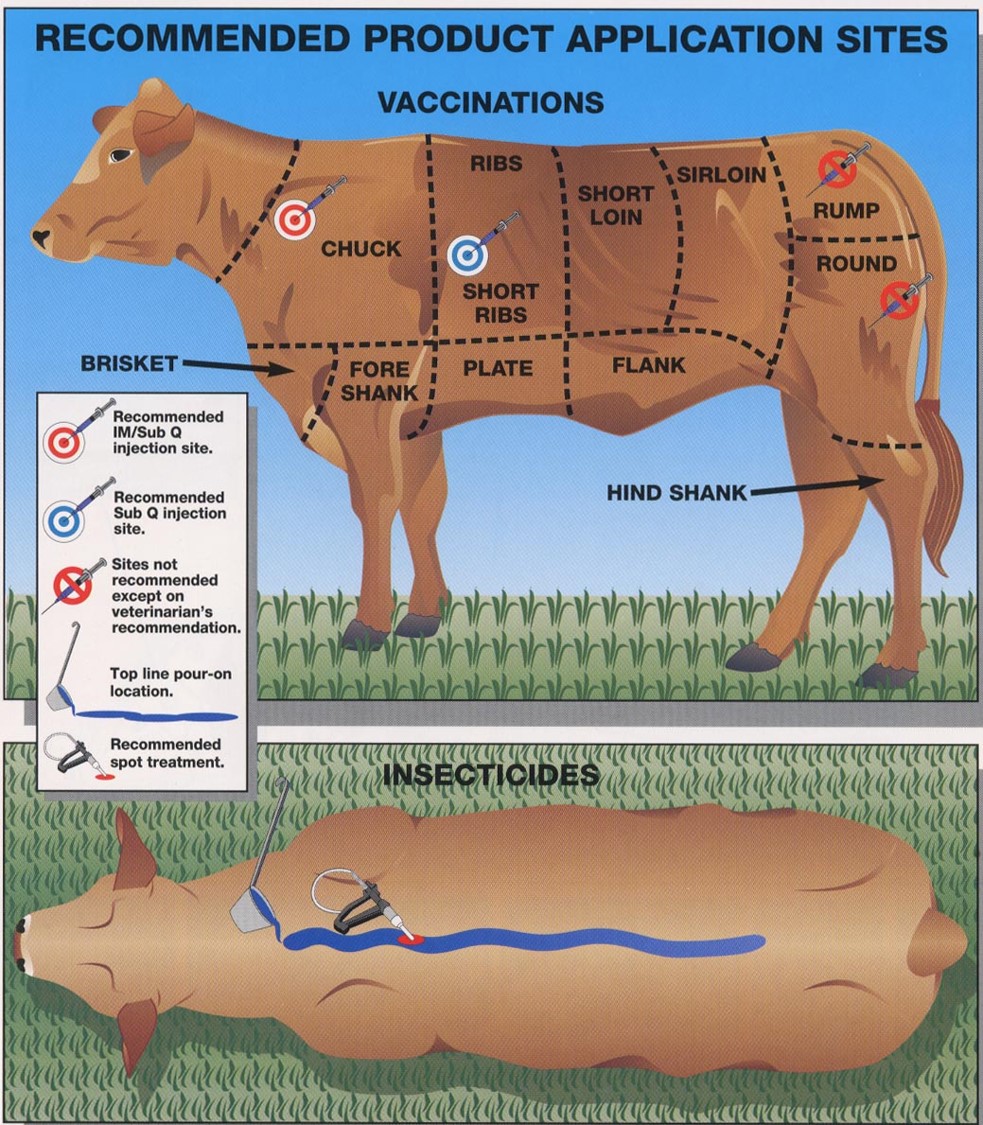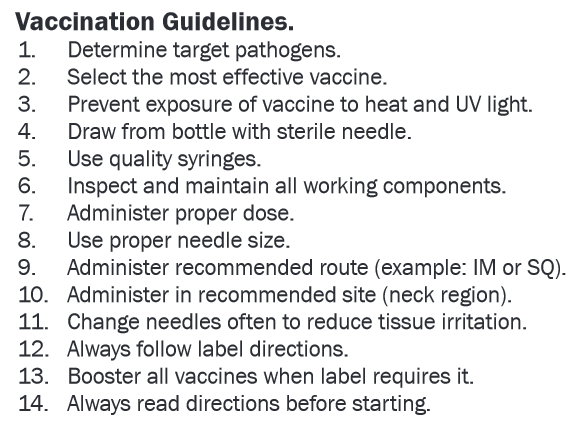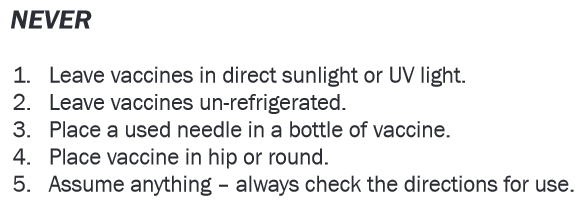 There are several variables in the vaccination equation: the people, the animals, and the vaccine. All these variables work together to create immunity to diseases in our livestock. With so many variables, things can sometimes go wrong and the animal fails to develop the desired immune response. Put another way; the animal can get sick even though it was vaccinated.
There are several variables in the vaccination equation: the people, the animals, and the vaccine. All these variables work together to create immunity to diseases in our livestock. With so many variables, things can sometimes go wrong and the animal fails to develop the desired immune response. Put another way; the animal can get sick even though it was vaccinated.
There are several reasons for vaccine failure. People are ultimately responsible for ensuring that all variables are correct, but here are some big mistakes we sometimes make:
- Giving the wrong sized dose – carefully read and follow all label instructions.
- Incorrect booster timing – schedule time to administer the initial vaccination only when you know you can booster it in a timely manner. Many vaccines require a booster 2-3 weeks after the initial dose. Be sure to read the label.
- Incorrect vaccine injection site on the animal – some vaccines are supposed to go in the muscle; some are supposed to go under the skin. Again read the label instructions and follow them.
The animal is very important to the equation as well. Animals that are thin, sick, or animals under stress can fail to develop the desired response to vaccines. Cattle that are lacking in nutrients or are diverting nutrients to other physical needs may not develop the desired immunity. Young animals that still have residual passive immunity acquired from the mother since its birth, also may not develop lasting immunity. Check with your local vet for a livestock vaccination schedule.
The vaccine itself is important too, of course. Vaccines should be stored at the proper temperature. Check your refrigerator that you store vaccines in to make sure it maintains a constant temperature of 35-45 degrees F. Vaccines are sensitive to heat and freezing temperatures. Don’t store excess or unused, vaccine. Use all vaccine immediately and discard any unused vaccine. Be sure to use vaccines before the expiration date. Expired vaccines may become ineffective causing the animal to fail to develop immunity.
The take home message is always read label instructions carefully! Store and administer vaccinations according to the label instructions and recommended schedules, and maintain a healthy herd by following recommended best management practices.
Additional information:
Vaccinations for the Beef Cattle Herd
- Field Days are for Education– Recap of the WFREC 2025 Corn & Soybean Field Day - July 25, 2025
- Spray Drone Regulations - July 16, 2024
- 2023 WFREC Crop Variety Trial Results - February 2, 2024


